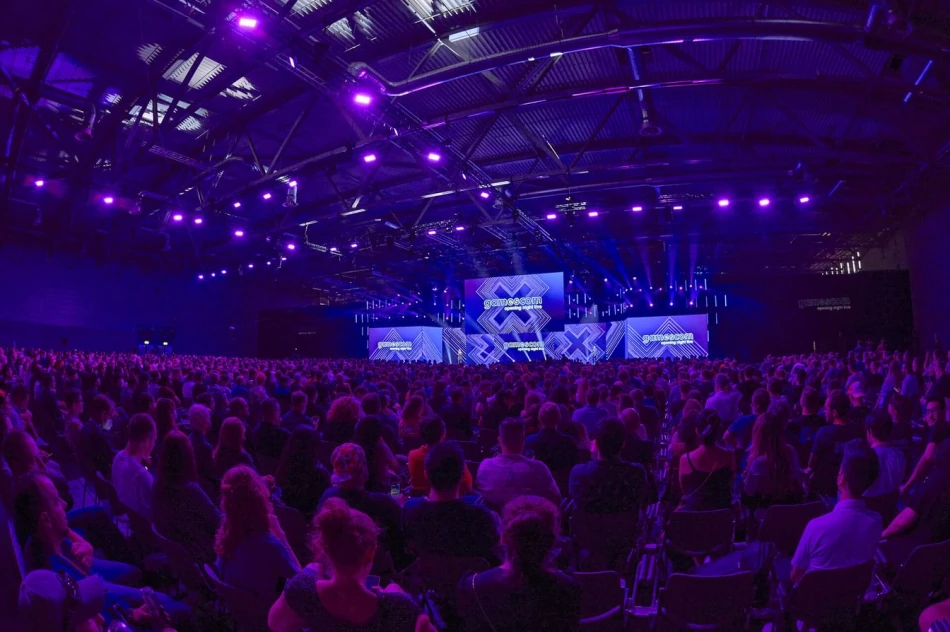
Dubai Showcases at World's Largest Gaming Expo 'Gamescom' with First-Ever Government Pavilion from the Middle East
Dubai Makes Strategic Gaming Gambit With First Middle East Government Pavilion at Gamescom
Dubai is positioning itself as a serious contender in the global gaming industry, marking a historic milestone as the first Middle Eastern government to establish an official pavilion at Gamescom, the world's largest gaming expo. The move signals Dubai's ambitious push to crack the top 10 global gaming hubs by 2033 while targeting $1 billion in economic contribution and 30,000 new jobs in the sector.
A Bold Play for Gaming Supremacy
The Dubai Gaming Program 2033, overseen by the Dubai Future Foundation, is leveraging Gamescom 2024 in Cologne, Germany (August 20-24) to showcase its comprehensive ecosystem to international developers, entrepreneurs, and major production companies. This isn't just about attendance—it's about establishing Dubai as a legitimate alternative to established gaming capitals like Singapore, South Korea, and California.
The pavilion brings together three key government entities: Dubai Future Foundation, Dubai Culture and Arts Authority, and Dubai Multi Commodities Centre (DMCC). This coordinated approach reflects Dubai's understanding that gaming success requires alignment across innovation, cultural development, and business infrastructure.
The Numbers Behind the Ambition
Dubai's gaming sector has already gained significant momentum since the program's November 2023 launch. The emirate now hosts over 350 companies across gaming-related fields, with 260 (74%) focused specifically on game development. Notably, 67% of these companies have chosen Dubai as their global headquarters, while 12% represent major international technology firms.
The growth trajectory is impressive: Dubai has welcomed over 60 new gaming companies since the program's inception—a 16.6% increase in less than a year. DMCC alone houses more than 140 gaming companies, representing 40% of Dubai's gaming sector, supported by a specialized gaming hub within a broader ecosystem of over 3,200 members focused on technology and Web3.
Strategic Positioning Against Global Competition
Dubai's approach mirrors successful gaming hub strategies seen in other regions, but with distinct advantages. Unlike Singapore's focus on fintech-gaming convergence or South Korea's domestic market strength, Dubai is positioning itself as a gateway between East and West, leveraging its traditional role as a trading hub.
The emirate's value proposition centers on accessible financing, streamlined licensing solutions, and partnerships with industry leaders—critical factors that have historically determined which cities become gaming powerhouses. This infrastructure-first approach echoes strategies that made cities like Austin and Montreal unexpected gaming capitals.
Market Implications and Investor Interest
For international gaming companies, Dubai represents an opportunity to access Middle Eastern and African markets while maintaining proximity to European and Asian operations. The government's commitment to creating 30,000 jobs and contributing $1 billion to the digital economy by 2033 suggests substantial public investment backing private sector growth.
The timing is strategic. As global gaming revenues continue expanding—particularly in mobile and emerging technologies—establishing presence in growth markets becomes increasingly valuable. Dubai's Web3 and blockchain-friendly regulatory environment also positions it well for the next generation of gaming technologies.
Beyond the Hype: Real Competitive Advantages
Dubai's gaming ambitions benefit from several concrete advantages. The city's existing status as a regional business hub provides ready access to talent and capital. Its cultural diversity offers natural advantages in developing games for global markets, while government backing ensures regulatory stability—a critical factor for long-term gaming industry investments.
The coordination between cultural authorities and business development entities also suggests a more holistic approach than purely economic initiatives. This cultural component could prove crucial as gaming increasingly intersects with entertainment, sports, and digital media.
However, Dubai faces significant challenges. Established gaming hubs have decades of talent development and industry relationships. Success will ultimately depend on execution—whether Dubai can translate government ambition into sustainable private sector growth and genuine innovation rather than simply relocating existing operations.
The Gamescom debut represents more than marketing; it's a declaration that Dubai intends to compete seriously for global gaming industry leadership. Whether this translates into lasting success will depend on sustaining momentum beyond the initial government push.
Most Viewed News

 Sara Khaled
Sara Khaled






